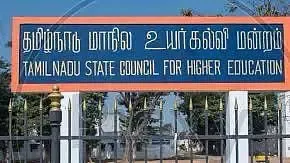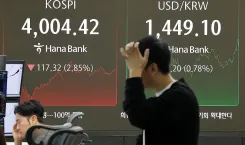Are Small Traders Preparing to Challenge E-Commerce Giants?

Synopsis
Key Takeaways
- CAIT is organizing a national conclave to address concerns about e-commerce giants.
- The event will be held in New Delhi and Vrindavan from May 16 to 18.
- More than 100 trade leaders are expected to attend.
- CAIT accuses e-commerce platforms of unfair practices undermining traditional retail.
- The conclave aims to unite small traders for collective action.
New Delhi, May 4 (NationPress) The Confederation of All India Traders (CAIT) declared on Sunday its intention to host a three-day national conclave from May 16 to 18, in Delhi and Vrindavan, Uttar Pradesh, targeting major e-commerce and quick commerce firms like Amazon, Flipkart, Blinkit, Swiggy Instamart, and Zepto.
CAIT, which asserts representation of over 90 million small businesses nationwide, aims to strategize and galvanize a nationwide movement against the purported unethical and illegal practices of these e-commerce entities. The conclave is anticipated to attract more than 100 prominent trade leaders from various states, according to a CAIT announcement.
CAIT has accused these platforms of systematically undermining India's traditional retail sector by exploiting Foreign Direct Investment (FDI) to support predatory pricing, control supply chains, and establish monopolistic dominance. Such actions are reportedly endangering over 30 million small retailers and kirana stores, threatening the livelihoods of about 250 million individuals reliant on the retail sector.
According to CAIT, these companies have gained FDI yet have failed to invest in infrastructure development, instead choosing to subsidize losses and provide deep discounts through select vendors, thereby breaching FDI norms.
They are not engaging in genuine trade but are significantly involved in a “valuation game”, stated CAIT.
The physical traders have also charged these online platforms with violating the Competition Act, 2002, through exclusive agreements, price manipulation, and withholding essential information from consumers, thereby hindering market competition and consumer choice.
CAIT has further claimed that the operation of numerous “dark stores” across the nation for deliveries is seen as a direct infringement of FDI policies that prohibit e-commerce entities from maintaining inventories and establishing retail outlets.
“These commerce platforms are akin to the modern-day East India Company,” remarked CAIT National President B.C. Bhartia.
“Their aim is to dominate the market by eradicating small grocery and retail outlets, creating an uneven playing field that jeopardizes the livelihoods of over 3 crore kirana stores in India.”
CAIT Chairman Brij Mohan Agrawal mentioned that CAIT has previously submitted a comprehensive white paper detailing these issues and calling for immediate regulatory action. The organization stresses that the unchecked growth of these foreign-funded firms poses a significant threat to India’s small retail landscape.
He noted that on May 16, a full-day conclave will be held in New Delhi, followed by a Chintan Shivir on May 17 and 18 at Vrindavan, where trade leaders nationwide will devise an action plan against these companies, which will be executed in over 500 cities across the country. The specifics of the agitation will be determined during the Chintan Shivir.
The conclave will culminate in a unified call for action, urging these e-commerce and quick commerce companies to either adhere to Indian laws and fair trade practices or exit the Indian market, as stated by CAIT.









